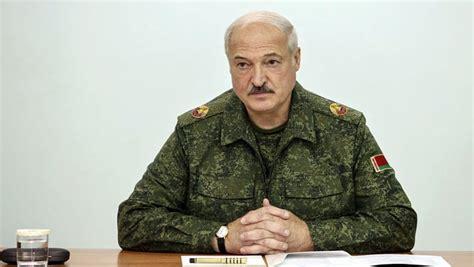
Belarus Tightens Grip: Lukashenko Orders Armed Street Patrols Amid Rising ‘Extremist’ Threats
In a move that has stirred considerable controversy both domestically and internationally, Belarusian President Alexander Lukashenko has announced a significant escalation in law enforcement measures across Belarus, directing security agencies to conduct armed patrols in cities to combat what he describes as a rising tide of ‘extremist’ crimes.
This directive, revealed in a state media video, underscores Lukashenko’s increasingly iron-fisted approach to governance, a stance that has long drawn criticism for its human rights implications.
The Directive:
A Response to ‘Extremist’ Crimes
Lukashenko’s decision, ostensibly aimed at enhancing public safety, mandates that patrols be “armed with small arms, at least pistols,” a requirement that marks a notable intensification of the state’s law enforcement posture. “People should feel safe at home, at work, on the street, at any time of the day,” Lukashenko asserted, emphasizing the perceived threat from crimes of an ‘extremist nature.’
The President’s call to arms follows a series of detentions of ‘saboteurs,’ including Ukrainian and Belarusian nationals, purportedly involved in ‘counter-terrorist operations’ along the Belarus-Ukraine border – incidents that Lukashenko suggests are indicative of a broader, more sinister campaign against the Belarusian state.
Underlying Motives: Security or Suppression?
While the official narrative frames these measures as necessary for national security, critics argue they serve a dual purpose: enhancing public safety and tightening the regime’s grip on power. Lukashenko’s tenure, characterized by an unyielding crackdown on dissent, has seen the marginalization of opposition parties, the suppression of protests, and a systematic campaign against independent journalism and civil society.
The recent directive can be seen as an extension of this approach, leveraging the specter of ‘extremist’ threats to justify an increasingly militarized public sphere. This strategy, while possibly effective in deterring crime, raises acute concerns regarding civil liberties and the potential for abuse of power.
A Broader Context: Lukashenko’s Belarus
These developments occur against a backdrop of profound political and economic challenges for Belarus. Lukashenko’s explicit support for Russia’s actions in Ukraine and the hosting of Russian tactical nuclear weapons have isolated Belarus from the West, subjecting it to stringent sanctions that have battered its economy. Meanwhile, the upcoming parliamentary elections, widely viewed as a farce by opposition figures and international observers alike, are expected to further entrench Lukashenko’s rule.
“The Belarusian parliament is nothing but a farce, a circus,” remarked exiled opposition leader Sviatlana Tsikhanouskaya, highlighting the regime’s relentless pursuit of absolute control.
The armed patrols directive, therefore, must be understood within this larger narrative of repression, resistance, and the quest for sovereignty in the face of external pressures.
In the end, as Belarus navigates these turbulent waters, the international community watches closely, balancing concerns for human rights against the geopolitical complexities of Eastern Europe.
Lukashenko’s latest move, while purportedly aimed at ensuring public safety, underscores the enduring challenges of governance, security, and human rights in a nation at the crossroads of authoritarianism and aspiration.
Source » bnnbreaking.com





